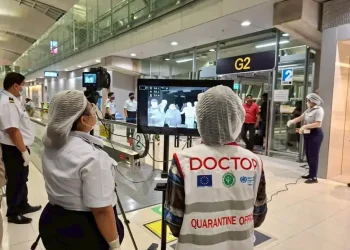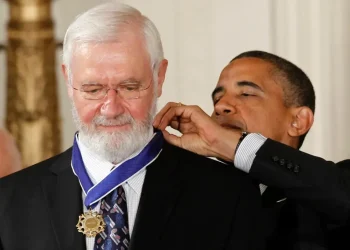Ousted CDC Vaccine Advisers Warn Kennedy’s Shakeup Could Jeopardize Public Health
All 17 recently dismissed members of a key U.S. vaccine advisory panel are speaking out — and they’re sounding the alarm.
In a sharply worded essay published Monday in the Journal of the American Medical Association, the former members condemned recent actions by Health Secretary Robert F. Kennedy Jr., calling them “destabilizing decisions” that could roll back decades of public health progress and put Americans at greater risk for preventable diseases.
Their statement comes just days after Kennedy abruptly disbanded the Advisory Committee on Immunization Practices (ACIP) — the long-standing panel that helps guide national vaccine recommendations — and removed its veteran CDC coordinator, Dr. Melinda Wharton.
A Sudden Overhaul
Kennedy, a longtime critic of vaccine mandates and pandemic health policies, announced last week that he would “retire” the entire panel. Two days later, he named eight new members, including a prominent skeptic of COVID-19 vaccines, a vocal opponent of lockdowns, and an individual affiliated with a group widely regarded as a hub for vaccine misinformation.
In response, the former members voiced serious concern:
“These destabilizing decisions, made without clear rationale, may roll back the achievements of U.S. immunization policy, impact people’s access to lifesaving vaccines, and ultimately put U.S. families at risk,” they wrote.
CDC Staff Departures Deepen the Concern
The panel shakeup is just part of a broader exodus from the CDC’s immunization division. In recent weeks, several top experts have either been removed or resigned, including longtime staffers who gathered and presented data for ACIP.
Among those departing: Dr. Lakshmi Panagiotakopoulos, a 12-year CDC veteran. She resigned earlier this month after Kennedy unilaterally reversed COVID-19 vaccine recommendations for healthy children and pregnant women — a decision made without consulting the advisory panel.
In her farewell note, she wrote:
“My career in public health and vaccinology started with a deep-seated desire to help the most vulnerable… and that is not something I am able to continue doing in this role.”
What Happens Next?
The newly appointed committee is scheduled to meet next week, although no agenda has been released. According to a recent federal notice, the group is expected to vote on vaccine recommendations for flu, COVID-19, HPV, RSV, and meningococcal disease.
But with key CDC staff gone and new members stepping in cold, the dismissed experts say the transition could compromise the quality and speed of decision-making.
“Terminating all members and its leadership in a single action undermines the committee’s capacity to operate effectively,” they warned.
Kennedy’s Rationale — and Critics’ Warnings
Kennedy has defended the overhaul, claiming the committee had grown too cozy with pharmaceutical companies and was effectively rubber-stamping vaccine approvals. While ACIP policies require members to disclose past industry ties and recuse themselves from conflicts of interest, Kennedy has dismissed those safeguards as insufficient.
The ACIP has been a fixture in U.S. public health since 1964, offering evidence-based guidance on how FDA-approved vaccines should be used. Its recommendations have shaped everything from pediatric vaccine schedules to emergency pandemic response — and are typically adopted by the CDC director and followed by physicians nationwide.
Whether Kennedy’s sweeping reset will reshape vaccine policy for the better or plunge it into chaos remains to be seen. But one thing is clear: many of the nation’s top vaccine experts are worried — and watching closely.
This article was rewritten by JournosNews.com based on verified reporting from trusted sources. The content has been independently reviewed, fact-checked, and edited for accuracy, neutrality, tone, and global readability in accordance with Google News and AdSense standards.
All opinions, quotes, or statements from contributors, experts, or sourced organizations do not necessarily reflect the views of JournosNews.com. JournosNews.com maintains full editorial independence from any external funders, sponsors, or organizations.
Stay informed with JournosNews.com — your trusted source for verified global reporting and in-depth analysis. Follow us on Google News, BlueSky, and X for real-time updates.












